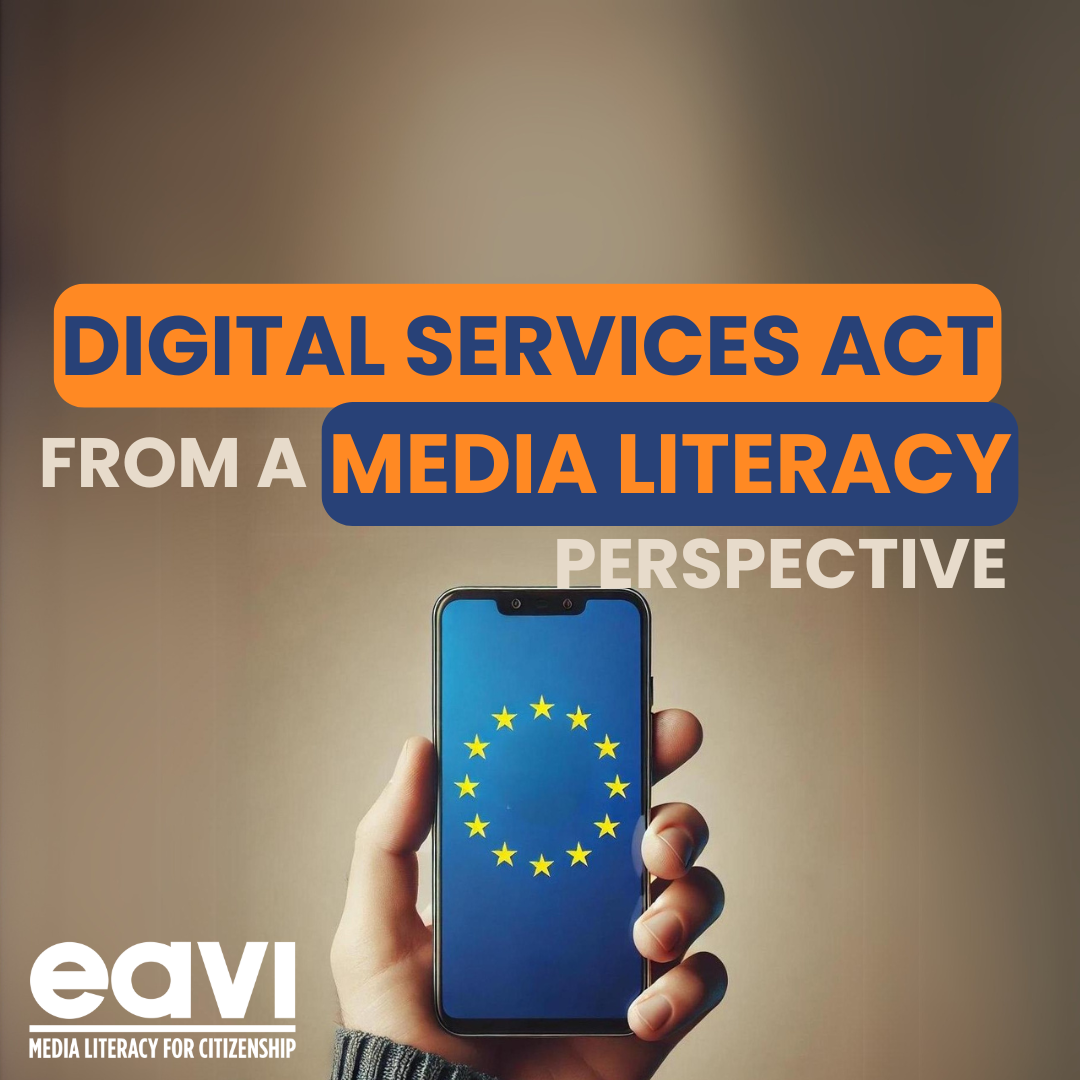We are watching a futurist movie, representing Europe in 2060. Everyone wonders how the situation in our countries is going to be in the future, if we own cars able to fly, if we can go on holidays on the moon, whether we have discovered the potion of eternal youth or not. Unfortunately, if we keep our feet on the ground and we look at statistics and reports, we find out that we desperately need to discover the magic potion: by 2060 1 in 3 Europeans will be over 65 and the number of inactive people will more than double the active ones. This will surely mean that the European population is not going to grow and this will be a burden for the contributory system, but this also implies that fewer and fewer caregivers will be able to take care of the growing army of elderly people.
How are we going to cope with this issue?
The European Union is really concerned about this trend, which is nowadays the most important challenge for European health and care systems, that’s why with Horizon 2020 (the programme funding research, technological development, and innovation) the EU is also investing in e-health. Giving a real definition of it is challenging and tricky, since one of the first things we are taught is not to check on the web the cause of symptoms we have! The E-health concept, though, is more than just online forums where people talk about symptoms and natural solutions to illnesses with some random doctors’ interventions. The European Commission has given the following definition: “the use of modern information and communication technologies to meet needs of citizens, patients, healthcare professionals, healthcare providers, as well as policy makers. [ref] The e-health definition can encompass several domains, like electronic health and medical records, telehealth and telemedicine, health IT systems, virtual health care, mobile health and big data systems. [/ref]
There are two crucial aspects we want to give emphasis to; first for the importance they have for European citizens, and the second for the step forward this policy is making.
The digital transformation concerns basically data for medical purposes and medical research. They are, indeed, not stored and presented in the same way by all Member States, and this is a bottleneck, since if data were available more easily, professionals could develop better diagnoses, treatment or personalised care. This is the key word: personalised care, or rather, person-centred care. Since we now have European health insurance, it would be essential to develop digital tools in this sense, which should be the same in all Member States, assuring EU standards for data quality, reliability and data security, as well as a standardisation of electronic health records.
Coming to the point, the investments in e-health are especially effective in providing quality care to ageing European citizens through artificial intelligence. Robots are meant to become healthcare products in themselves, able to facilitate checking blood or sugar levels for example, to monitor diabetes or heart failure and reaching doctors, hospitals or family immediately if needed. Elderly people could in this way rely on self-monitoring technologies or on remote monitoring systems. Ageing with ICTs (Information and Communication Technologies) will become possible, and it will be strictly related to the Internet of things.
The European Commission is supporting two key programmes in this field:
- Active and Assisted Living Programme (AAL) for boosting research on ICT services useful for ageing well. Ageing well doesn’t only mean a constant checkup of health status, but also the possibility of living in your environment (instead of hospitals) without worries. This would be also beneficial for social care systems all around European Union, since it would lead to lower the costs of healthcare.
- Robotics for ageing well is no more utopia! Within the programme mentioned above, different robotic solutions are being tested: from a robot in charge of compensating the loss of cognitive ability in the ageing process, to one which brings people out to the grocery shop or the pharmacy for example, passing through friend robots which provide company for lonely and elderly people in order to fight social isolation.
For further information:
https://ec.europa.eu/digital-single-market/en/research-and-innovation-ageing-well-ict
https://ec.europa.eu/digital-single-market/en/policies/75976/3570
https://ec.europa.eu/digital-single-market/en/robotics-ageing-well-current-research
We are watching a futurist movie, representing Europe in 2060. Everyone wonders how the situation in our countries is going to be in the future, if we own cars able to fly, if we can go on holidays on the moon, whether we have discovered the potion of eternal youth or not. Unfortunately, if we keep our feet on the ground and we look at statistics and reports, we find out that we desperately need to discover the magic potion: by 2060 1 in 3 Europeans will be over 65 and the number of inactive people will more than double the active ones. This will surely mean that the European population is not going to grow and this will be a burden for the contributory system, but this also implies that fewer and fewer caregivers will be able to take care of the growing army of elderly people.
How are we going to cope with this issue?
The European Union is really concerned about this trend, which is nowadays the most important challenge for European health and care systems, that’s why with Horizon 2020 (the programme funding research, technological development, and innovation) the EU is also investing in e-health. Giving a real definition of it is challenging and tricky, since one of the first things we are taught is not to check on the web the cause of symptoms we have! The E-health concept, though, is more than just online forums where people talk about symptoms and natural solutions to illnesses with some random doctors’ interventions. The European Commission has given the following definition: “the use of modern information and communication technologies to meet needs of citizens, patients, healthcare professionals, healthcare providers, as well as policy makers. [ref] The e-health definition can encompass several domains, like electronic health and medical records, telehealth and telemedicine, health IT systems, virtual health care, mobile health and big data systems. [/ref]
There are two crucial aspects we want to give emphasis to; first for the importance they have for European citizens, and the second for the step forward this policy is making.
The digital transformation concerns basically data for medical purposes and medical research. They are, indeed, not stored and presented in the same way by all Member States, and this is a bottleneck, since if data were available more easily, professionals could develop better diagnoses, treatment or personalised care. This is the key word: personalised care, or rather, person-centred care. Since we now have European health insurance, it would be essential to develop digital tools in this sense, which should be the same in all Member States, assuring EU standards for data quality, reliability and data security, as well as a standardisation of electronic health records.
Coming to the point, the investments in e-health are especially effective in providing quality care to ageing European citizens through artificial intelligence. Robots are meant to become healthcare products in themselves, able to facilitate checking blood or sugar levels for example, to monitor diabetes or heart failure and reaching doctors, hospitals or family immediately if needed. Elderly people could in this way rely on self-monitoring technologies or on remote monitoring systems. Ageing with ICTs (Information and Communication Technologies) will become possible, and it will be strictly related to the Internet of things.
The European Commission is supporting two key programmes in this field:
- Active and Assisted Living Programme (AAL) for boosting research on ICT services useful for ageing well. Ageing well doesn’t only mean a constant checkup of health status, but also the possibility of living in your environment (instead of hospitals) without worries. This would be also beneficial for social care systems all around European Union, since it would lead to lower the costs of healthcare.
- Robotics for ageing well is no more utopia! Within the programme mentioned above, different robotic solutions are being tested: from a robot in charge of compensating the loss of cognitive ability in the ageing process, to one which brings people out to the grocery shop or the pharmacy for example, passing through friend robots which provide company for lonely and elderly people in order to fight social isolation.
For further information:
https://ec.europa.eu/digital-single-market/en/research-and-innovation-ageing-well-ict
https://ec.europa.eu/digital-single-market/en/policies/75976/3570
https://ec.europa.eu/digital-single-market/en/robotics-ageing-well-current-research
We are watching a futurist movie, representing Europe in 2060. Everyone wonders how the situation in our countries is going to be in the future, if we own cars able to fly, if we can go on holidays on the moon, whether we have discovered the potion of eternal youth or not. Unfortunately, if we keep our feet on the ground and we look at statistics and reports, we find out that we desperately need to discover the magic potion: by 2060 1 in 3 Europeans will be over 65 and the number of inactive people will more than double the active ones. This will surely mean that the European population is not going to grow and this will be a burden for the contributory system, but this also implies that fewer and fewer caregivers will be able to take care of the growing army of elderly people.
How are we going to cope with this issue?
The European Union is really concerned about this trend, which is nowadays the most important challenge for European health and care systems, that’s why with Horizon 2020 (the programme funding research, technological development, and innovation) the EU is also investing in e-health. Giving a real definition of it is challenging and tricky, since one of the first things we are taught is not to check on the web the cause of symptoms we have! The E-health concept, though, is more than just online forums where people talk about symptoms and natural solutions to illnesses with some random doctors’ interventions. The European Commission has given the following definition: “the use of modern information and communication technologies to meet needs of citizens, patients, healthcare professionals, healthcare providers, as well as policy makers. [ref] The e-health definition can encompass several domains, like electronic health and medical records, telehealth and telemedicine, health IT systems, virtual health care, mobile health and big data systems. [/ref]
There are two crucial aspects we want to give emphasis to; first for the importance they have for European citizens, and the second for the step forward this policy is making.
The digital transformation concerns basically data for medical purposes and medical research. They are, indeed, not stored and presented in the same way by all Member States, and this is a bottleneck, since if data were available more easily, professionals could develop better diagnoses, treatment or personalised care. This is the key word: personalised care, or rather, person-centred care. Since we now have European health insurance, it would be essential to develop digital tools in this sense, which should be the same in all Member States, assuring EU standards for data quality, reliability and data security, as well as a standardisation of electronic health records.
Coming to the point, the investments in e-health are especially effective in providing quality care to ageing European citizens through artificial intelligence. Robots are meant to become healthcare products in themselves, able to facilitate checking blood or sugar levels for example, to monitor diabetes or heart failure and reaching doctors, hospitals or family immediately if needed. Elderly people could in this way rely on self-monitoring technologies or on remote monitoring systems. Ageing with ICTs (Information and Communication Technologies) will become possible, and it will be strictly related to the Internet of things.
The European Commission is supporting two key programmes in this field:
- Active and Assisted Living Programme (AAL) for boosting research on ICT services useful for ageing well. Ageing well doesn’t only mean a constant checkup of health status, but also the possibility of living in your environment (instead of hospitals) without worries. This would be also beneficial for social care systems all around European Union, since it would lead to lower the costs of healthcare.
- Robotics for ageing well is no more utopia! Within the programme mentioned above, different robotic solutions are being tested: from a robot in charge of compensating the loss of cognitive ability in the ageing process, to one which brings people out to the grocery shop or the pharmacy for example, passing through friend robots which provide company for lonely and elderly people in order to fight social isolation.
For further information:
https://ec.europa.eu/digital-single-market/en/research-and-innovation-ageing-well-ict
https://ec.europa.eu/digital-single-market/en/policies/75976/3570
https://ec.europa.eu/digital-single-market/en/robotics-ageing-well-current-research








































































































































































